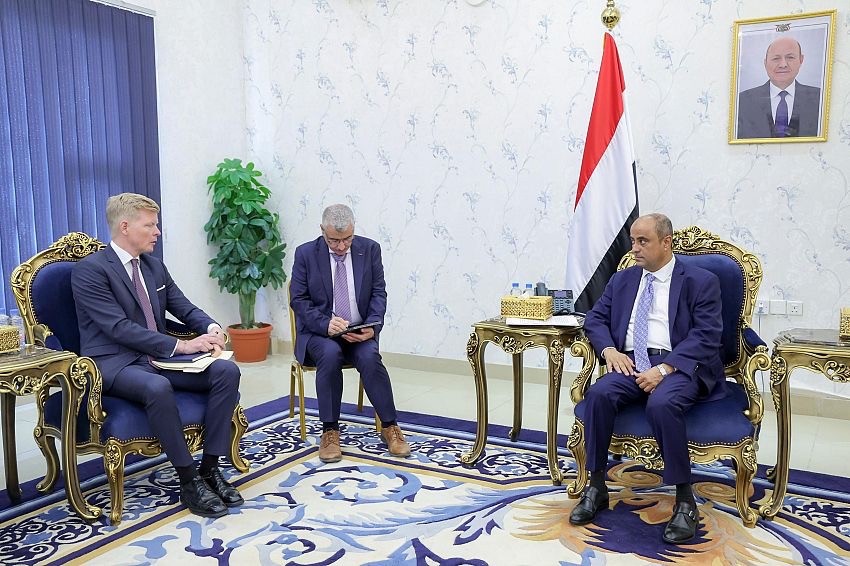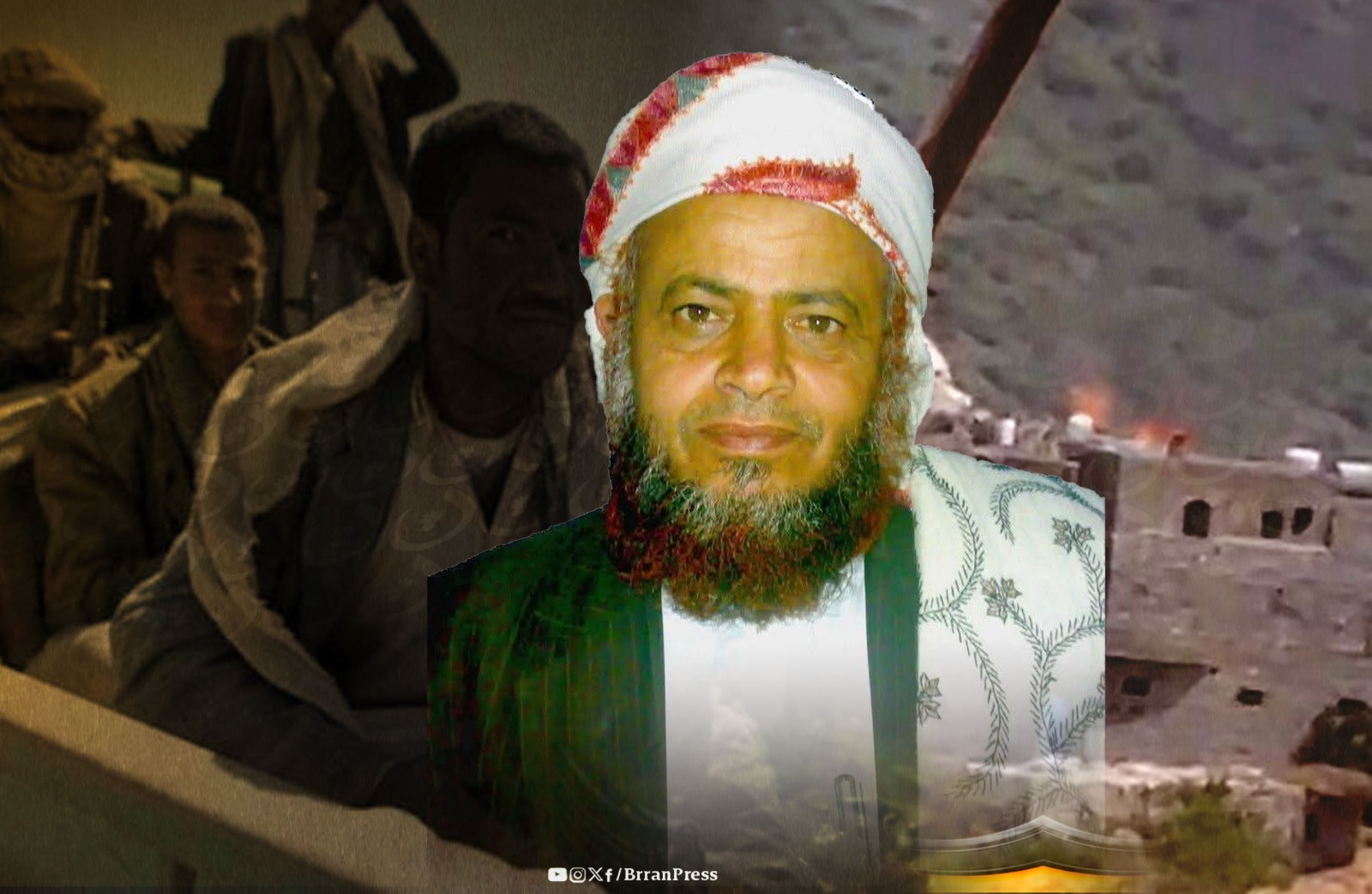Barran Press
On Saturday, August 24, 2024, Ahmed Obeid bin Dagher, President of Yemen's Shura Council and First Deputy Chairman of the General People's Congress (GPC), delivered a recorded speech at the 42nd anniversary celebration of the party in Marib, emphasizing the need for unity within the GPC and advocating for a federal state as the solution to the Houthi insurgency.
Bin Dagher acknowledged the challenges facing the GPC, stating that while other Arab parties have been shaped by power or shaped the power structure, the GPC has managed to maintain its existence despite the "serious divisions" caused by the coup and the ongoing war. He attributed this to the party's diverse leadership and decision-making centers but highlighted the need to overcome this "gap" to preserve the party's historical identity.
He called on GPC leaders to "feel the national responsibility" and address the party's fragmentation, urging them to restore unity in leadership and decision-making. He expressed concern over the existence of multiple GPC branches within a single province, emphasizing the need to rectify this "flaw."
Bin Dagher welcomed the return of Ahmed Ali Abdullah Saleh, son of the late President Ali Abdullah Saleh, after the lifting of sanctions against him, seeing it as an "opportunity for reconciliation." He expressed hope for a united party based on respect for the National Charter, rejection of the Houthi coup, and recognition of legitimacy. He asserted that these principles should guide the GPC's stance and policies.
The celebration in Marib, according to Bin Dagher, was a tribute to the province's role as a "frontline defending half of Yemen" and a testament to the sacrifices of its people and their allies from other provinces. He lauded the Yemeni army, which he described as "the enemy's fear" and "a force advancing towards Sana'a from the mountains of Nehm," for its resistance against the Houthis.
He expressed gratitude to Marib's local leadership, particularly Sheikh Sultan al-Arada, Vice President of the Presidential Leadership Council and Governor of Marib, for his "competent and wise leadership" in the province's impressive development.
Bin Dagher acknowledged the challenging circumstances surrounding the anniversary, marking a decade since the Houthi coup against the legitimate government. He lamented the Houthi's control over parts of Yemen, which he described as "the return of backwardness with its cultural and racist implications, casting its evil face on our lives." He stressed the need to address these threats and challenges.
Bin Dagher painted a bleak picture of the situation in Yemen, stating that ten years of conflict against the Houthi coup had pushed the country back to a pre-September 1962 era, even predating the first independence. He accused the Houthis of destroying Yemen's economic potential and social fabric through their "aggressive, terrorist, racist, and sectarian" approach. He also criticized the Houthis for attempting to revive the "odious imamate" and undermining Yemen's unity, despite the sacrifices made to achieve it in the past.
He stressed that the GPC, alongside other national forces, is committed to preserving the achievements of the Yemeni revolution and defending its democratic and unifying legacy. He emphasized that confronting the Houthi insurgency and defeating it is crucial for achieving this goal. He also called for an end to Iranian interference in Yemen, labeling it a "real and imminent danger" that fuels instability in the region.
Bin Dagher highlighted the ongoing efforts to combat the Houthi coup and Iranian influence through a broad Arab coalition led by Saudi Arabia. He expressed gratitude for the support of regional allies in the fight to restore the state, a state whose federal structure was outlined in the National Dialogue Conference. He emphasized that this federal state is the aspiration of those seeking freedom, justice, and equality, and a unified, secure, and stable Yemen.
He reiterated the GPC's commitment to the National Dialogue Conference's outcomes, particularly the establishment of a federal state that guarantees rights and freedoms, and ensures equitable distribution of power and wealth. He urged GPC members to champion this project, seeing it as a unifying national solution to the deep crisis facing the state and society.
Bin Dagher emphasized that the decision to establish a federal state was a core GPC decision and a significant step taken by the party. He dismissed disagreements over the number of regions, their names, or boundaries as insufficient reasons to reject or abandon the federal model after national consensus was reached.
He highlighted the National Dialogue Conference as a testament to the maturity of Yemen's political thinking, representing a unified national response to the crisis in the political system, particularly the issues of Saada, the South, and social tensions. He emphasized that the conference provided a just solution to the equitable distribution of power and wealth.
Bin Dagher asserted that upholding the National Dialogue Conference's outcomes, particularly the federal state, is a crucial form of struggle for those committed to Yemen's future. He stressed that a federal state is the only project capable of confronting the Houthi's sectarian and racist agenda and addressing the social tensions that have fueled the conflict.
He also acknowledged the need for a fair and consensual peace in Yemen, stating that no single party can rule the country or impose its political or ideological beliefs, especially if those beliefs involve a return to "slavery," regardless of its source or strength. He expressed his vision for a stable Yemen, reconciled with itself and its neighbors, reflecting the GPC's approach to legitimacy and its commitment to a peaceful future.
The speech was delivered at a ceremony held in Marib, attended by local authorities, provincial governors, military and security leaders, political parties, government officials, tribal leaders, social figures, women leaders from various political forces, and a large crowd of citizens and GPC members.





